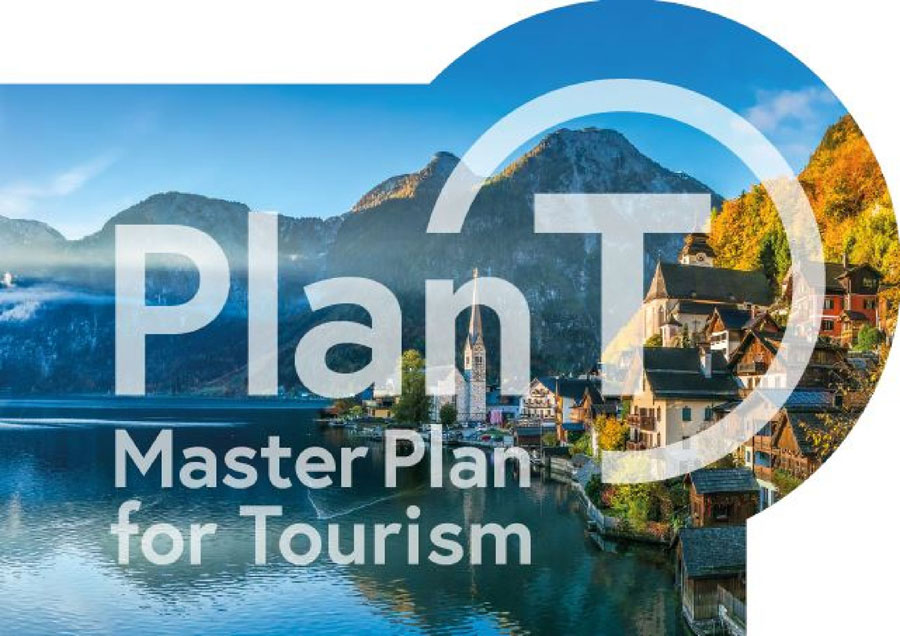Plan T – Master Plan for Tourism
In 2019, the Ministry responsible for tourism published a new national tourism strategy, the "Plan T – Master Plan for Tourism". It lays down guidelines for sustainable development of tourism and serves as a guide for political decisions at all levels.

Sustainability in all its dimensions and a culture of cooperation are central considerations to achieve a new quality of tourism policy. "Plan T" strongly aims to contribute to the implementation of the Agenda 2030 and achievement of the Sustainable Development Goals (SDGs) of the United Nations. For implementation, it is complemented by action plans with concrete measures and activities.
The Austrian national tourism strategy "Plan T" has been developed in a broad participative process involving hundreds of relevant stakeholders. It is the basis for tourism policy and lays its focus on joint sustainable development of tourism in Austria – addressing not only the needs of guests, but also of the industry, the environment and host communities.
Key aspects of "Plan T":
- Improving the dialogue and initiating stronger cooperation with Federal Provinces, destinations, businesses, interest groups and stakeholders from other sectors.
- Supporting digital transformation, such as supporting tourism businesses to adapt, creating data alliances and expanding e-government services.
- Creating appropriate framework conditions for the tourism sector, including in the fields of taxation, business succession and new business models (such as setting framework conditions for the sharing economy).
- Optimising the quality of training and better exploiting the potential for inter-business measures to improve the attractiveness of working in tourism.
- Working towards greater levels of sustainability, including by improving climate-friendly mobility and promoting further use of renewable energy.
- Intensifying cooperation between tourism and agriculture, including in the culinary sector.
- Further developing tourism marketing, such as rethinking destination management and optimising the use of new technologies.
- Strengthening family-run and owner-managed enterprises by tailor-made financing and subsidy mechanisms as well as developing new financing mechanisms with a focus on equity.
- Creating a future-oriented system of statistical indicators covering all three dimensions of sustainability.
Tourism destinations are living environments, which should be conceived in a way that guests, tourism enterprises and their employees as well as the local population can feel at ease, and that enables the creation of regional added value and jobs, while at the same time respecting nature and environment. A new certification scheme for sustainable tourism destinations will contribute to these objectives. Greening SMEs will be a focus of the new support scheme for SMEs.
Another key area of "Plan T" is digitalisation – a major challenge for the tourism sector with manifold opportunities for innovation, productivity and tailor-made solutions for both demand and supply. An important measure in this regard is the establishment of a "Tourism Data Space" and improving digital skills. An ongoing initiative is the digitalisation of the guest registration. This will not only provide real time data on guests, but will also advance e-government.